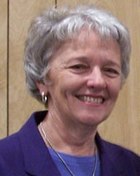
Back Kanadische Unterhauswahl 1997 German Elecciones federales de Canadá de 1997 Spanish Élections fédérales canadiennes de 1997 French Elezioni federali in Canada del 1997 Italian 1997年カナダ総選挙 Japanese Канадские федеральные выборы (1997) Russian 1997 Canadian federal election SIMPLE 1997年加拿大联邦大选 Chinese
| ||||||||||||||||||||||||||||||||||||||||||||||||||||||||||||||||||||||||||||||||||||||||||||||||
301 seats in the House of Commons 151 seats needed for a majority | ||||||||||||||||||||||||||||||||||||||||||||||||||||||||||||||||||||||||||||||||||||||||||||||||
|---|---|---|---|---|---|---|---|---|---|---|---|---|---|---|---|---|---|---|---|---|---|---|---|---|---|---|---|---|---|---|---|---|---|---|---|---|---|---|---|---|---|---|---|---|---|---|---|---|---|---|---|---|---|---|---|---|---|---|---|---|---|---|---|---|---|---|---|---|---|---|---|---|---|---|---|---|---|---|---|---|---|---|---|---|---|---|---|---|---|---|---|---|---|---|---|---|
| Opinion polls | ||||||||||||||||||||||||||||||||||||||||||||||||||||||||||||||||||||||||||||||||||||||||||||||||
| Turnout | 67.0% ( | |||||||||||||||||||||||||||||||||||||||||||||||||||||||||||||||||||||||||||||||||||||||||||||||
| ||||||||||||||||||||||||||||||||||||||||||||||||||||||||||||||||||||||||||||||||||||||||||||||||
 The Canadian parliament after the 1997 election | ||||||||||||||||||||||||||||||||||||||||||||||||||||||||||||||||||||||||||||||||||||||||||||||||
| ||||||||||||||||||||||||||||||||||||||||||||||||||||||||||||||||||||||||||||||||||||||||||||||||
The 1997 Canadian federal election was held on June 2, 1997, to elect members to the House of Commons of the 36th Parliament of Canada. Prime Minister Jean Chrétien's Liberal Party won a second majority government. The Reform Party replaced the Bloc Québécois as the Official Opposition.
The election results closely followed the pattern of the 1993 election. The Liberals swept Ontario, while the Bloc won a majority in Quebec. Reform made sufficient gains in the West to allow Preston Manning to become leader of the Official Opposition, but lost its only seat east of Manitoba. The most significant change was major gains in Atlantic Canada by the New Democratic Party (NDP) and the rump Progressive Conservative Party. The Liberal victory was not in doubt, though some commentators on election night were predicting that the party would be cut down to a minority government and that Chrétien might lose his seat. Chrétien narrowly won his riding, and the Liberals maintained a nine-seat majority thanks to gains in Quebec at the expense of the Bloc. Jean Charest's Tories and Alexa McDonough's NDP both regained official party status in the House of Commons.
This was the first time that five political parties held official party status in a single session of Canada's Parliament, and the only time to date that five different parties have won the popular vote in at least one of the provinces and territories of Canada.
Cite error: There are <ref group=lower-roman> tags or {{efn-lr}} templates on this page, but the references will not show without a {{reflist|group=lower-roman}} template or {{notelist-lr}} template (see the help page).
© MMXXIII Rich X Search. We shall prevail. All rights reserved. Rich X Search






